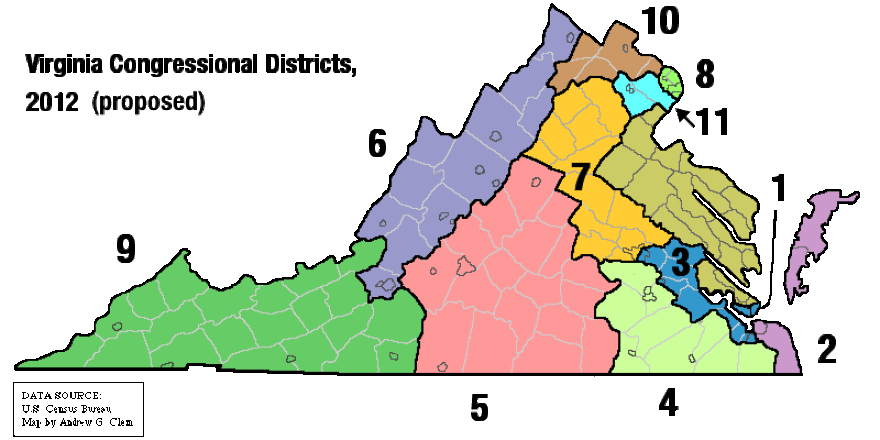State legislators meet in a special session Monday to discuss how they will redraw congressional boundaries after two courts ruled the current map is unconstitutional, but lawmakers are likely to divide along partisan lines.
Under a federal court order, Virginia’s legislature has until September first to come up with a new map that eliminates racial gerrymandering – drawing strangely shaped districts that minimize the influence African Americans can have in electing candidates to Congress. Dale Eisman is with the watchdog group Common Cause.
“It’s easy to take voter turnout data and see year after year after year what areas tend to vote for one party or the other and to manipulate the lines so that the Republicans get mixed in together and the Democrats are all together, and we don’t get any change.”
Eisman says voters deserve at least ten days to study and comment on any new maps, and Democrats have made their plan public. Among other things, the 5th Congressional District – now represented by Republican Robert Hurt -- would not extend from North Carolina to Loudoun County, instead going as far north as the Albemarle-Greene County line. The 10th Congressional District, which elected Republican Barbara Comstock, would no longer run from Northern Virginia to West Virginia line, and African-Americans would not be packed into the 3rd Congressional District. Instead, their votes could influence the outcome of races in the 3rd, 5th and 8th districts, while Hispanics could hold sway in the 8th and 11th.
If the legislature can’t agree on a new map that judges deem constitutional, a judge may end up crafting Virginia’s congressional districts. Critics like Dale Eisman at Common Cause hope this is just a stop on the road to creating a non-partisan commission to handle this process in the futue.
"This is a partisan game," Eisman says. "That’s part of the problem with it. That’s part of what we’d like to see changed about it."
Six states now have non-partisan commissions and 16 more have bipartisan panels to draw new congressional and legislative districts as the census shows changes in population.


